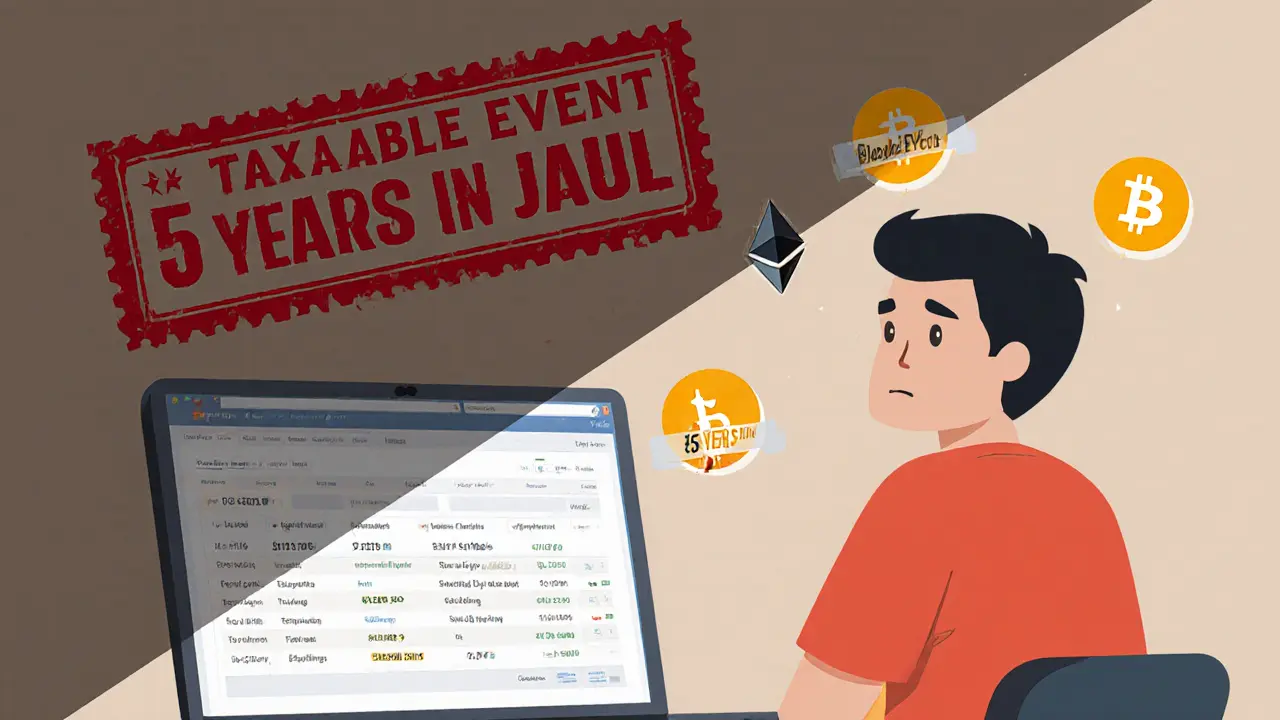Crypto Tax Reporting: What You Need to Know in 2025
When you trade, sell, or even swap one crypto for another, you’re triggering a crypto tax reporting, the legal requirement to track and declare cryptocurrency transactions to tax authorities. Also known as crypto taxation, it’s not about whether you made a profit—it’s about whether you moved assets at all. The IRS, HMRC, and other agencies treat crypto like property, not cash. That means every trade, even swapping USDT for ETH, can create a taxable event. If you bought Bitcoin for $30,000 and traded it for 5 ETH worth $35,000, you just made a $5,000 capital gain—and yes, the tax man wants his cut.
It’s not just trades that matter. capital gains tax crypto, the tax applied when you sell or exchange crypto at a higher value than you bought it applies to airdrops, staking rewards, and even gifts. If you got 100 $HERO tokens from the Step Hero airdrop and later sold them for $200, that’s taxable income. If you earned 0.5 ETH from staking on a DeFi protocol, that’s also income at the time you received it. And if you used crypto to buy a coffee? That’s a taxable sale. The rules are strict, and enforcement is growing. Countries like Pakistan enforce a 15% capital gains tax, while others like Russia ban domestic crypto payments entirely—yet still track cross-border movements. Ignorance won’t protect you.
What makes this messy is that crypto tax rate, the percentage you owe based on your income and how long you held the asset changes depending on where you live and how long you held your coins. Short-term gains (held less than a year) are taxed like regular income. Long-term gains often get lower rates—but only if you can prove your holding period. Most people don’t track this. They just remember buying Bitcoin and forget every swap, every fee, every reward. That’s how audits start. Platforms like SharkSwap might not show up on CoinMarketCap, but if you used them to trade, you still owe taxes on that transaction. No exchange, no audit trail, no excuse.
And then there’s the risk. crypto tax laws, the legal frameworks governing how crypto transactions are reported and taxed across jurisdictions are evolving fast. In the U.S., the IRS has subpoenaed exchanges. In the UK, HMRC runs targeted campaigns. In Australia, they’ve matched data from wallets to tax filings. If you’ve used a fake DEX like LocalCoin or Coinbook, you’re not hiding—you’re making yourself a target. The tools to track you are everywhere: blockchain explorers, wallet analytics, exchange data leaks. You don’t need to be rich to get caught. You just need to have moved crypto.
What you’ll find below isn’t advice on how to avoid taxes—it’s a clear-eyed look at what actually happened. Real cases. Real platforms. Real tax triggers. We’ve pulled together reviews of exchanges where people actually traded, airdrops where tokens were received, and scams where assets vanished—all with one thing in common: they left a paper trail. Whether you’re trying to file your own taxes or just want to know what’s real, these posts show you exactly where the risks lie—and how to stay on the right side of the law.
Future of Automated Crypto Tax Reporting in 2025
By 2025, automated crypto tax reporting is mandatory in over 100 countries. Discover how CARF, DAC8, and Form 1099-DA work, where the system still fails, and what you need to do now to stay compliant.
Details +Crypto Tax Evasion: 5 Years in Jail and $250,000 Fines
Crypto tax evasion can lead to 5 years in prison and $250,000 fines. The IRS now tracks every transaction with new reporting rules. Learn what you must report, how they catch you, and how to fix past mistakes.
Details +Canadian Tax Treatment of Cryptocurrency: Complete Guide for 2025
Learn how Canada taxes cryptocurrency in 2025 - capital gains vs. business income, reporting rules, penalties, and how to avoid mistakes. A complete guide for Canadian crypto owners.
Details +

